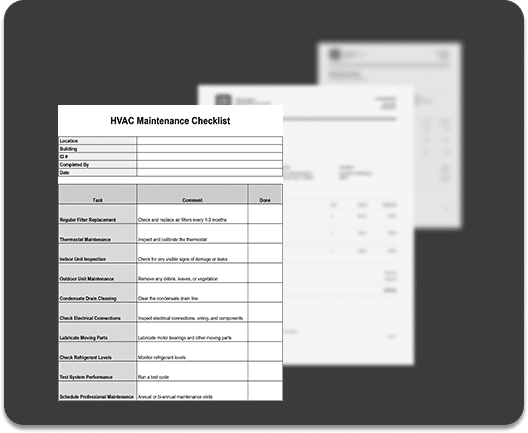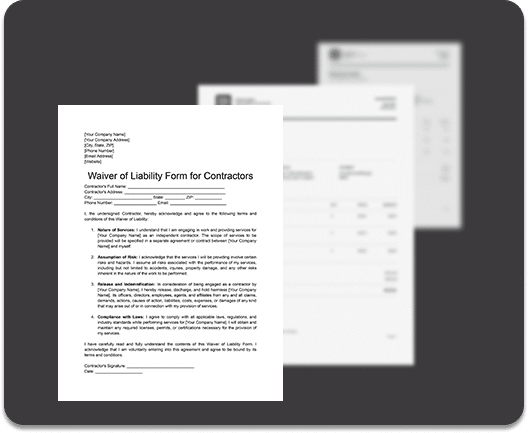Since the dawn of civilization, humans have organized themselves into societies with unique roles and responsibilities for many key participants. These roles and responsibilities have become increasingly codified over time – this early progress preceded the modern establishment of labor laws, at least in informal ways.
The U.S. government has passed several labor laws clearly defining employer responsibilities towards their employees and outlining various provisions to protect both employers’ and employees’ interests.
However, all U.S. states have unique interpretations of these laws, meaning labor laws vary from state to state. Certain state laws may sometimes provide greater employee protections than federal law.
As part of our 50-state series, this article looks into the intricacies of New Hampshire labor laws, exploring everything from meals and breaks to overtime, PTO, and much more. Let’s get right to it.
Meals and Breaks in New Hampshire
Federal law does not provide for rest or meal breaks. However, most employers offer these breaks to prevent employee overexhaustion and to keep workers motivated.
New Hampshire is one of the few states in the U.S. that requires employers to provide a meal break. According to New Hampshire labor laws, employers must allow a 30-minute meal break for any employee working more than five consecutive hours.
The only exception to this law is when the employee can eat and work simultaneously. In this case, the employer must reimburse the employee for all hours worked, including meal times.
New Hampshire labor laws, like federal laws, don’t require employers to provide other paid breaks for their employees. If an employer chooses to provide paid break time, it is up to their discretion to reimburse the employees for the time spent on breaks.
Despite the numerous similarities between federal and New Hampshire labor laws on meals and breaks, there are a few notable differences.
For instance, New Hampshire does not offer any provisions to protect lactating mothers’ rights to express breast milk at work. However, the Fair Labor Standards Act (FLSA) requires employers in all states, including New Hampshire, to allocate a private space for mothers to express breast milk and a reasonable break time to do so effectively.
Meals and Breaks in New Hampshire
Meal Breaks
Employers must provide 30-minute meal breaks for every employee working more than five consecutive hours.
Rest Breaks
No Requirements
Lactation Breaks
No Requirements
Leave and Paid Time Off (PTO) in New Hampshire
The FLSA does not require employers to pay employees for any time not worked, including vacation or sick leave and federal holidays.
Vacation Leave
New Hampshire doesn’t have any laws requiring employers to offer vacation benefits, whether paid or unpaid. The state has also not given any further guidance on potential changes in its stance on vacation policies.
That said, some employers choose to offer vacation benefits, both paid and unpaid, as part of their employment contracts.
If an employer includes vacation benefits as part of their employment agreements, they’re legally required to give this benefit to employees. Failure to provide these benefits could be seen as a breach of contract and a potential legal liability.
Sick Leave
New Hampshire labor laws don’t require employers to provide sick leave benefits. If an employer chooses to provide these benefits, it must be per their employment contracts or established benefits. Additionally, employers must inform their employees of their defined stances, and regarding any changes to sick leave pay or other fringe benefits.
New Hampshire employees must follow federal regulations on sick leave. Under the Family and Medical Leave Act (FMLA), employers must provide unpaid sick leave to their employees.
Family and Medical Leave
The FMLA covers all federal employees. Under the law, any employee, including those working in New Hampshire, can request unpaid family or medical leave for a period not exceeding 12 months. After the leave, employees can return to their original position.
Under the Act, employees can request family or medical leave for a variety of reasons, including:
-
Dealing with extenuating circumstances due to an illness -
Caring for an ailing family member -
Caring for an injured or sick family member in the military
An employee must meet the following requirements to be eligible for a family or medical leave under the FMLA:
-
Worked for the same employer for at least 12 months -
Worked more than 1,250 hours for the same employer over the previous year -
Be working for an employer with at least 50 employees. If the employer has several locations, the locations must have more than 50 employees within 75 miles of the covered employee’s primary workplace.
FMLA has several exceptions. For instance, employees caring for an injured military family member only get 26 weeks of leave every 12 months. The law also offers other provisions for sick leave if an employee experiences:
-
Disability emanating from childbirth -
Disability concerning childbirth, or -
Any medically related condition preventing them from working
Overtime Regulations in New Hampshire
Under New Hampshire labor laws, employers must pay employees who work more than 40 hours a week a rate of 1.5 times their regular pay.
This law is not limited to employees who are paid hourly; some salaried employees are also entitled to overtime pay. Certain factors dictate whether or not salaried employees qualify for overtime pay. These factors include:
-
Their job duties -
How much they earn, or -
Whether they are an employee or independent contractor
There are several other exemptions for overtime pay in New Hampshire.
For instance, any employees working in amusement businesses, seasonal employees, and employees working in recreational establishments are not entitled to overtime pay. Additionally, New Hampshire labor laws don’t require employers to pay overtime for any work done on holidays and weekends.
Wages and Benefits in New Hampshire
New Hampshire labor laws also cover various other employee pay conditions. These laws include:
Minimum Wage
The minimum wage in New Hampshire is $7.25 an hour, the same as the federal minimum wage. However, certain exemptions apply to the state’s minimum wage laws.
For instance, tipped employees and minors under 16 are exempt from New Hampshire’s minimum wage requirements.
According to the state’s labor laws, employers must notify their employees of their rate of pay as well as the date and means of their payment. Employers must also notify their employees of any changes to their pay rate, the day they’re paid, and any other relevant information concerning the employees’ pay.
Other exemptions to New Hampshire’s minimum wage requirements include:
-
Employees engaged in farm labor -
Newspaper carriers -
Employees engaged in household labor -
Golf caddies -
Outside sales representatives, and -
Employees at summer camps for minors
Regular Payment of Wages
New Hampshire labor laws require employers to pay employees for any work done within eight days of the work week unless they receive permission from the New Hampshire Department of Labor (NHDOL) to do otherwise.
Additionally, salaried employers should be paid at least once a month. As such, employers can pay their employees weekly, bi-weekly, or monthly.
Want to ensure your company stays compliant with overtime and other wage laws in New Hampshire– or any other state? Try Workyard!
With Workyard, you can…
-
Accurately track time worked with precise GPS and geofencing -
Automatically remind employees to clock in/out and take breaks -
Reduce payroll waste by up to $2,000 per employee -
Integrate with popular accounting, payroll, and ERP systems
Click the links above to discover how Workyard can help handle your employment compliance needs, or go to the link below to start a fully-featured 14-day free trial today:

Ensure employment compliance and better manage your payroll with Workyard
Try Workyard Free for 14 Days
Final Pay
If an employee quits their job, their employer must provide their final paycheck on the next regular payday. Contrarily, if an employer terminates an employee, they must pay their employee’s final paycheck within 72 hours.
Prevailing Wages in New Hampshire
New Hampshire doesn’t have any laws governing wage rates in the state. However, employers may be required to pay their employees wage rates established by federal standards under certain circumstances.
Additionally, employees may be eligible for prevailing wages if they work on government or government-funded projects or perform certain government services.
You can find more information on New Hampshire’s labor laws on prevailing wages on:
-
Davis-Bacon and Related Acts -
Walsh-Healey Public Contracts Act (PCA), and -
McNamara-O’Hara Service Contract Act (SCA)
Hiring Practices in New Hampshire
Like every other state in the U.S., New Hampshire has a unique set of laws governing employment practices. These laws protect potential employees’ right to privacy and equal treatment and prevent discrimination.
Some notable practices every employer in the state should follow include:
Fair Employment Practices
Any employer with six or more employees must follow the New Hampshire Law Against Discrimination (NHLAD). These laws protect employees against discrimination based on:
-
Age -
Sex -
Marital status -
Race -
Religious creed -
Gender identity -
Nation of origin -
Physical or mental disability, and -
Sexual orientation
The NHLAD also prohibits employers from terminating employees who file discrimination complaints or participate in any discrimination hearing.
Recruitment and Hiring
The New Hampshire Fair Credit Reporting Act allows employers to obtain and use a consumer report when hiring. However, the employer must notify the applicant in writing that a consumer report will be used in making hiring decisions.
If an employer fails to hire an applicant based on information in their consumer report, they must disclose the information to the applicant and provide the name and address of the consumer reporting agency.
Discussion of Wages
New Hampshire’s Equal Pay Law states an employer should not solicit a potential employee to disclose their earnings from their previous job as a condition of their employment. Employers are also prohibited from terminating or retaliating against employees who choose to disclose their salary, wages, or paid benefits.
Background Checks
New Hampshire allows employers to perform background checks when hiring new employees. However, all screenings and checks should be conducted in accordance with the Equal Employment Opportunity Commission (EEOC) and the Fair Credit Reporting Act.
Although businesses are not legally required to perform background checks on job applicants, some professions that require background checks in New Hampshire include:
-
Foster care agency personnel -
Nursing home personnel -
School and daycare personnel, and -
Residential and children’s camp personnel
-
 Did You Know?
Did You Know?
The New Hampshire Fair Credit Reporting Act allows employers to obtain and use a consumer report when hiring.
Health and Safety Standards in New Hampshire
New Hampshire doesn’t have a state plan concerning occupational safety. The state’s safety measures are governed by federal OSHA regulations.
That said, New Hampshire has some laws protecting employees’ health and safety. However, since these laws don’t meet or exceed federal standards, they aren’t necessarily recognized by OSHA.
As a result, most private-sector employees are protected by federal OSHA regulations. However, public-sector employees are not protected under OSHA regulations and are under the protection and jurisdiction of the Safety & Training Division of the New Hampshire Department of Labor.
According to OSHA, workplace hazards can be classified into:
-
Physical -
Chemical -
Biological -
Safety -
Ergonomic, and -
Work organization
More information on health and safety standards in New Hampshire can be found on the New Hampshire Department of Labor inspection and safety training page and the Occupational Safety and Health Administration website.
Employee Termination and Resignation in New Hampshire
New Hampshire is an employment-at-will state. This means employers can terminate an employee’s employment for lawful reasons without repercussions. That said, there are several exceptions to the rule. They include:
-
Terminations that violate required levels of absence -
Terminations that violate labor laws, and -
Terminations that violate company policies approved by the commissioner
In the case of large layoffs involving 25 or more employees, employers are legally required to notify the New Hampshire Department of Employment Security regardless of whether the layoffs were temporary or permanent.
All unpaid wages for terminated employees should be paid within three days (72 hours) of their termination. Likewise, resigning employees should be paid in full on their next designated payday.
Employees who are wrongfully terminated can pursue claims and lawsuits through their lawyers. These claims and lawsuits cover:
-
Back pay -
Lost wages -
Lost benefits, and -
401K contributions
Unemployment Benefits in New Hampshire
If you lose your job in New Hampshire, you may be eligible for unemployment benefits. The state provides these benefits to partially replace the earnings of employees who lose their jobs at no fault of their own.
Eligibility and amount of employment benefits provided are handled by the New Hampshire Employment Security (NHES). The organization evaluates eligibility on a case-to-case basis.
There are several eligibility requirements for employment benefits in New Hampshire:
-
An employee must have earned at least a minimum amount of wages before becoming unemployed. -
They must be actively seeking employment. -
They must be unemployed through no fault of their own, as defined by New Hampshire law. -
They must have earned at least $2,800 in the entire base period. -
They must have earned at least $1,400 in each of two-quarters of the base period.
Filing a Claim for Unemployment Benefits
Eligible employees can file for unemployment benefits online at the NHES File For Benefits page. They can also claim their benefits in person at the nearest claims office in their area.
After filing a claim, employees can expect to receive a monetary determination from the NHES. This determination typically states the base wages reported by their employers during the base period and the amount of benefits they’re eligible to receive.
You can find more information on eligibility and how to file for unemployment benefits on the NHES website.
Penalties for Noncompliance in New Hampshire
Employees who face discrimination or feel their employer is not complying with the state’s labor laws may file a complaint with OSHA or the New Hampshire Labor Commission.
Employers violating these laws may get civil penalties, mainly monetary fines. For instance, any employer who fails to comply with New Hampshire’s workers’ compensation laws may receive a civil penalty of \$2,500 and an additional \$100 per employee for each day of non-compliance.
Other Essential Information About Labor Laws in New Hampshire
Other important state-specific labor laws you should know about New Hampshire include:
Whistleblower Laws
All New Hampshire employees who decide to act on and report workplace violations are protected by the New Hampshire Department of Labor under section 275-E:2 of the Whistleblower Protection Act.
According to the law, employers cannot harass or terminate employees for reporting workplace violations. The Whistleblower Act also protects employees against termination due to:
-
Refusal to participate in illegal activities -
Reporting workplace violations -
Refusal to break state and federal laws, and -
Participation in an open investigation regarding workplace violations
Social Media Law
New Hampshire labor laws prohibit employers from asking employees for information regarding their social media accounts on the grounds of assessment. This includes information such as:
-
Passwords -
Username, and -
Authentication information
The Bottom Line on New Hampshire Labor Laws
New Hampshire’s labor laws are designed to protect employee rights against discrimination, exploitation, and wrongful termination. They also serve to protect employer interests by ensuring the workforce is properly motivated.
Failure to comply with these laws can attract steep penalties, including civil penalties that may attract hefty fines.
For many businesses, the only real solution to compliance challenges is great software. The right business management software tends to come with built-in compliance and recordkeeping rules, regardless of your industry, how many employees you have, what they do, or how widely they’re dispersed across the state (or country).
If you operate a construction or field services company, we humbly suggest trying Workyard for your compliance needs.
Workyard is built around the industry’s most accurate GPS tracking and geofencing technology, which ensures payroll accuracy across your workforce, no matter which job site you send them to or when you need them to work there. Workyard’s timesheet tracking system also comes with built-in federal and state overtime rules, as well as adjustable break rules you can customize at the employee level.
Workyard’s intuitive scheduling dashboard makes it easy to direct your workforce to the jobs you need to do based on their skill sets, locations, availability, and (of course) their weekly time worked – so you can avoid unnecessary overtime payments and reduce reimbursable travel expenses.
All of these tools work together to save you money. Minimize payroll waste, ensure regulatory compliance without lifting a finger, accurately assess project costs in real-time, and pay your team easily, thanks to seamless payroll processing integrations.
Best of all, you can try it free for 14 days, so you can be sure it’s the right solution for your company. Just click here (or the buttons below) to get started today!
The post New Hampshire Labor Laws: A Complete Guide to Wages, Breaks, Overtime, and More (2024) appeared first on Workyard.


















